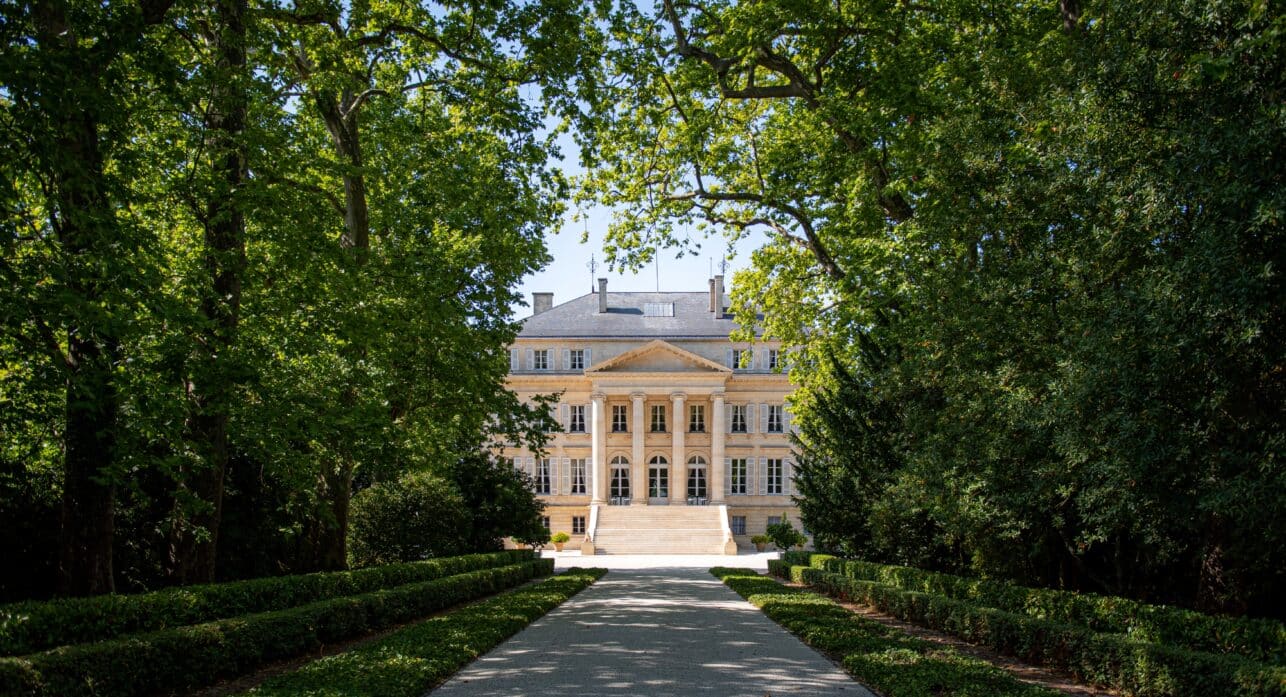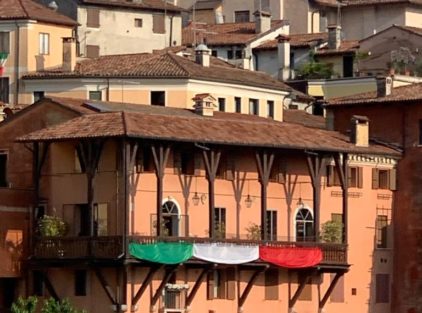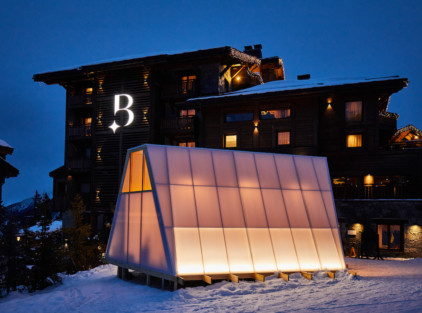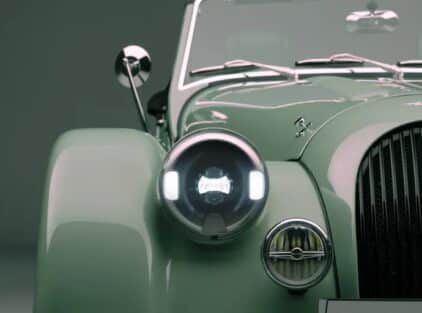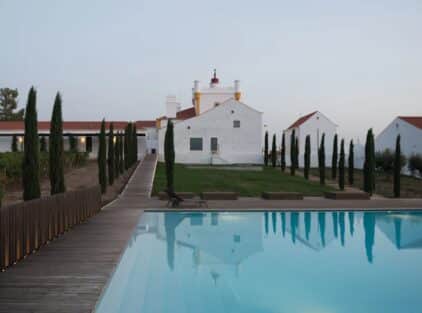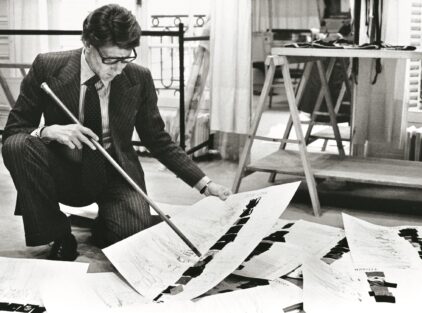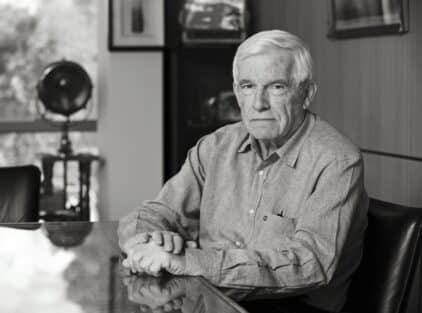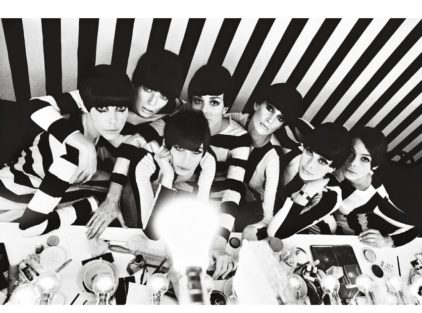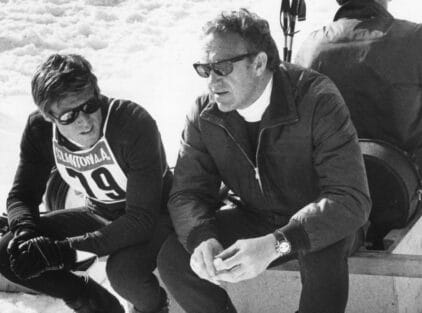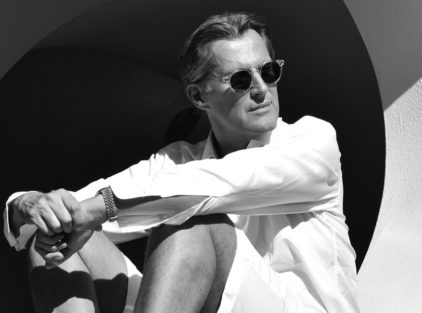Paris, Avenue Montaigne. At the offices of Château Margaux we are welcomed by Corinne Mentzelopoulos, the Greek-born owner of the legendary French wines. Between a portrait of Michael Jackson by Andy Warhol, a series of bottles of the famous wine and an ancient sculpture inherited from her father, the head of the historic wine estates introduces us to the world of the best wines in the world.
By George Archimandritis
Château Margaux is known as one of the “First” wines. What exactly does this mean?
This name has a historical and poetic character. Firstly, our estates are in a particularly advantageous position in the interior of the Médoc peninsula and we are also one of the oldest. The oldest roots of our vineyards date back to the 16th century and our wines date back to around 1600, while most of our other noble wines are much later. At the Second World’s Fair in Paris in 1855, where France was exhibiting its finest products, Napoleon III ordered a qualitative classification of wines. According to this classification, Château Margaux is among the first, i.e. the best wines, along with Château Lafitte, Château Mouton Rothschild, Château Haut-Brion and Château Latour which are also produced in the region. But Château Margaux is the only one whose name is the same as the name of its origin (Margaux). This is a history that goes back centuries, which is both an honour and a great responsibility for us, as we have to live up to it every year.
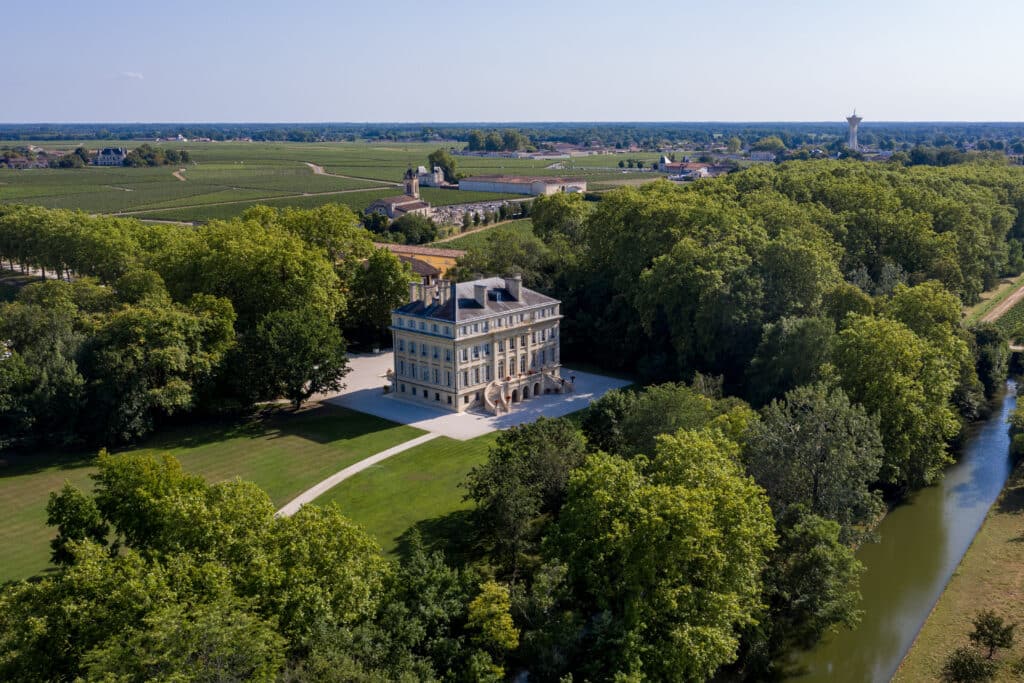
Chateau Margaux © Brice Braastad
When does the Metzelopoulou family come to the fore?
My father bought Château Margaux in 1977, after a series of disastrous years for Bordeaux vineyards from 1971 onwards. So when he came to the area, the locals thought he hadn’t understood anything and that it was a very risky business move. The fact that he was Greek – and not French – reinforced their mistrust. But my father proved within a very short time that he understood everything. He gave Château Margaux a huge boost and helped it rebirth, making major investments while respecting Margaux’s heritage, whether it was to renovate the château or to renew the vineyards. He bought cows to have natural manure, made plans for a second underground wine cellar and more. Everyone was impressed with his skills and the press called him a genius. The ’78 vintage was much better than previous vintages, but he was not fortunate enough to see the market for Château Margaux, and Bordeaux in general, soar as he died in 1980.
And with the ’82 crop, the miracle happens…
Exactly. This is an excellent harvest in terms of both quantity and quality. We had nowhere to put the grapes. It was unprecedented. So that year in America, the famous wine critic Robert Parker wrote “Hurry up and get Bordeaux ’82! There has never been a vintage like this!” And suddenly, thanks to him, the market soared. His review had a huge impact all over the world. So we entered the new era of Bordeaux. In the following years, the harvests were good, with one in three or four being excellent. And that’s very important because there’s no sure-fire way to make good wine. It depends first of all on factors that are often independent of you, and more specifically, on what the combination of soil and climatic conditions gives you each year. That’s why I don’t agree at all when people tell me that we are a luxury species. We are an agricultural product. If it rains for three months, my wine is ruined. I have a certain soil, a maximum quantity I can produce and a God who, if there is one, will decide whether the harvest will be good or bad. Everything else follows.
Who is your audience?
The largest markets are the USA, Australia and Asia. We sell our wines directly to Bordeaux merchants and they then sell them abroad. So there is a distribution system that is very advantageous for us. The Bordeaux market is the best in the world. Many foreign wines come there to become known. It’s the Wall Street of wine. They make good wines in other countries too. But they don’t have the structure, harmony or aging potential that ours have. We drank one of our own ’53 magnums the other day for my birthday and I have to tell you that I have never had a better wine in my life. I cannot describe to you the thrill I felt from this wine, its harmony, its silky texture, its aromas. It was a miracle, the magic of Bordeaux in all its glory. You can’t find a wine like this anywhere else in the world.
Where do you keep your precious old wines?
The wines of exceptional vintages are kept in our wine cellar – we call it Vinothèque. The most exceptional is from 1900. We have three bottles, which of course we know we’ll never drink. The next great vintages are 1928 and 1929 – see how long it’s been? -. Of these we have a few hundred bottles. We also have 1945 which was a very good year. 1961 was really amazing – that year had ice and the wine is dense and doesn’t spoil. Then we have ’82, ’85 and then 1989-1990, 1996, 2000, 2005, 2009-2010, 2015-2016 up to 2018-2019-2020, where for the first time in Bordeaux history we have three consecutive excellent years. Never before had such a thing happened.
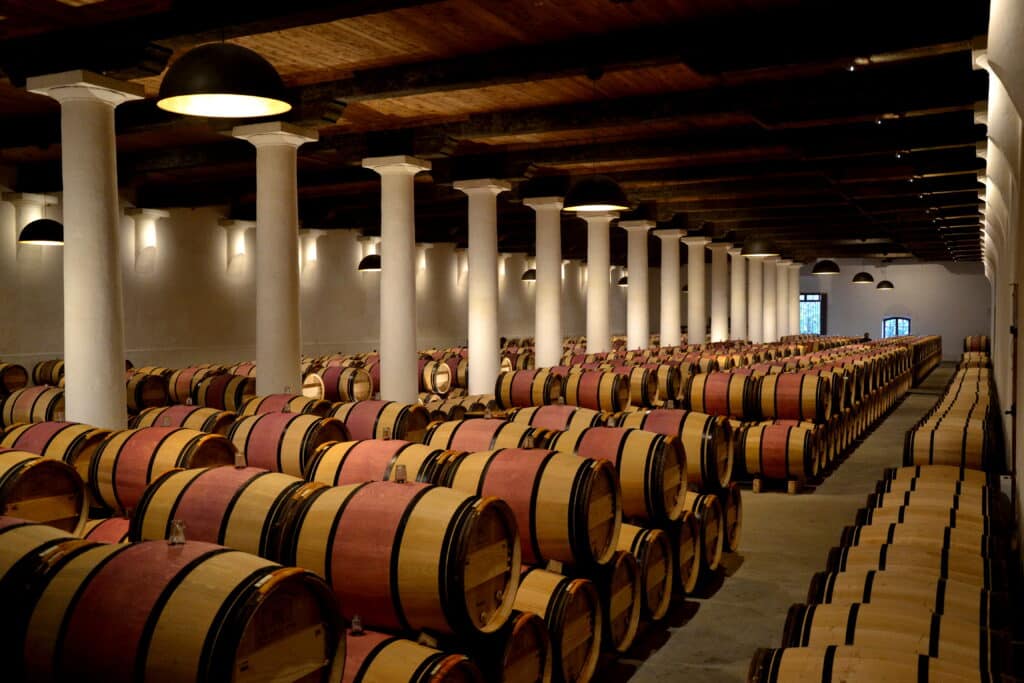
1st-year cellar © Château Margaux
And before 1900?
We have two bottles of 1848. It’s also a treasure we’ll never taste. Perhaps only on some extraordinary occasion. If, for example, the King of England were coming, we could offer him one of these if his visit had some special significance for the history of England or France. Depending on the years, some wines still drink well and others don’t. Ours generally get better as time goes on. The only people who can compete with us are the Americans, who have a lot of resources and often come to Bordeaux to learn from us. Their wines, however, have a lot of alcohol. The advantage of our wines is that some years we go up to 12-13 degrees or some years, like 2022, to 14 degrees, because of the high sunshine and aridity. However, we always keep a balance respecting our terroir, which is for wines that are harmonious, soft, silky, for wines whose power does not extinguish everything with its presence. Bordeaux is now back in the lead worldwide. Great noble wines are a national treasure of France, an essential element of the French art of living. This art has been carved out for centuries. We will continue to carve it in the future.
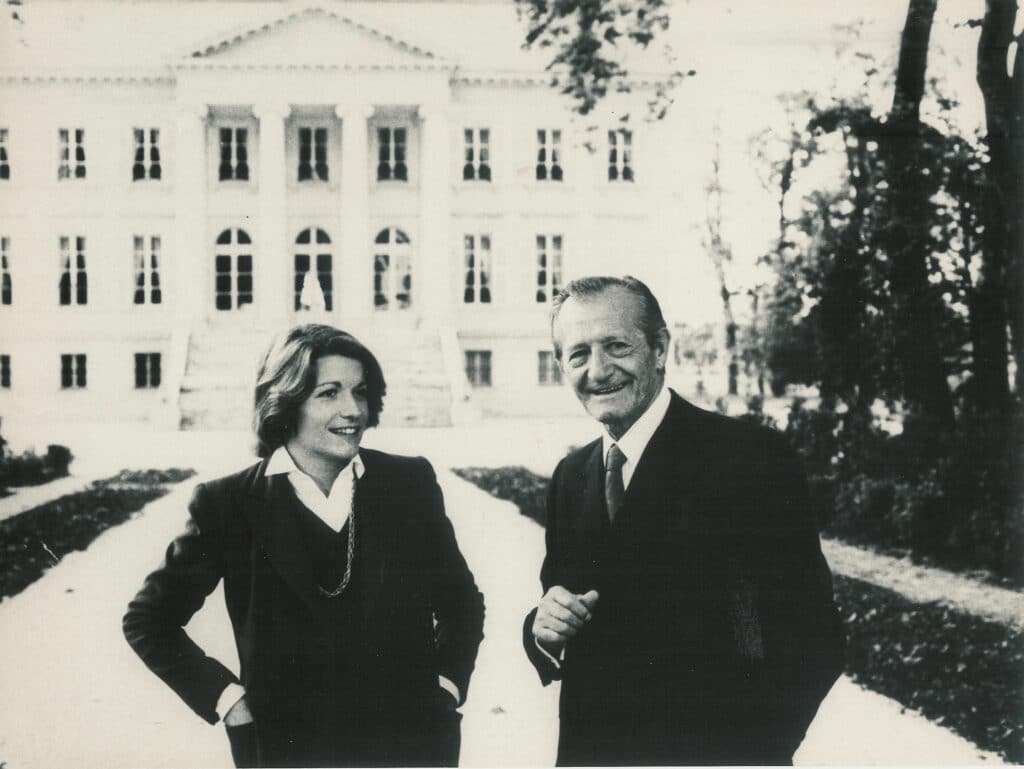
Corinne with her father Andre Mentzelopoulos




